On the Second day of the experience sharing workshop on best practices in nursing ecosystem need for competency-based curriculum and simulation-based learning in Nursing Education highlighted
On the Second day of the experience sharing workshop on best practices in nursing ecosystem need for competency-based curriculum and simulation-based learning in Nursing Education highlighted
Union Ministry of Health and Family Welfare, in collaboration with Jhpiego and World Health Organization (WHO), organized an Experience Sharing Workshop for Bringing in Best Practices in the Nursing Ecosystem Across India in New Delhi today.
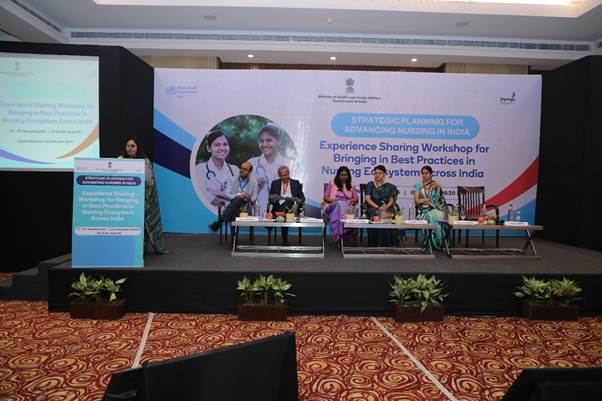
The multi-day workshop, which began on November 12, 2025, brings together senior officials from central and state governments, nursing leaders, academicians, and development partners into its Second day to deliberate on strategies for strengthening India’s nursing workforce, education systems, and governance mechanisms.
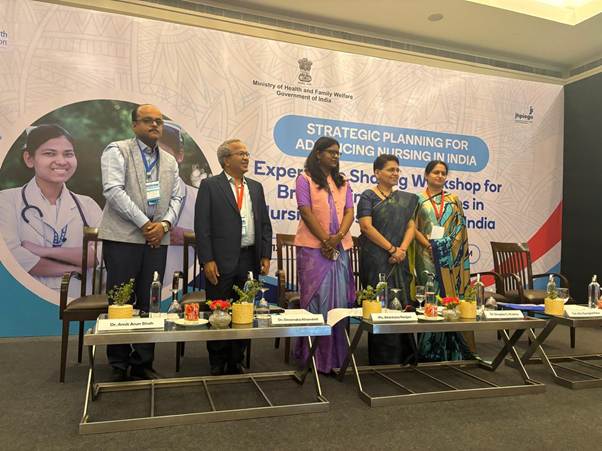
Day 1 of the workshop witnessed extensive discussions on nursing education reforms and workforce strengthening. Participants collectively emphasized the need to transform the processes, structure, and outcomes of nursing education to build a competent and future job-ready workforce. They agreed that education must have a clear goal — to make nursing graduates globally competitive and capable of contributing effectively to healthcare systems anywhere in the world.
On the second day, participants engaged in an experience-sharing workshop that provided a platform for states, institutions, and professional associations to highlight practical models and innovations. Presentations showcased initiatives such as the adoption of competency-based curricula, the establishment of simulation labs for clinical training, state-level reforms in accreditation systems, the use of digital platforms for continuous learning, and the introduction of structured continuing nursing education programmes.
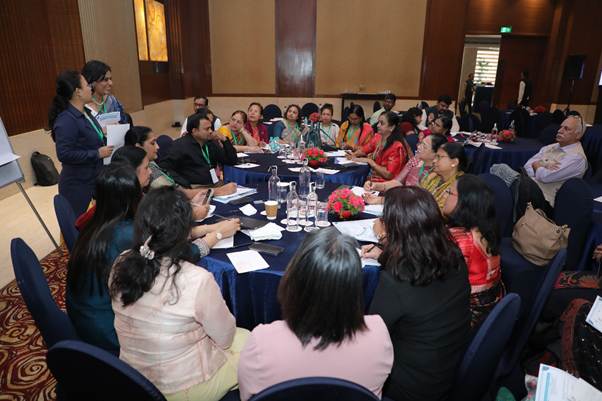
Discussions also explored the role of nursing leadership, quality assurance mechanisms, and partnerships with private sector institutions in advancing reforms. In addition to plenary sessions, thematic panels and breakout groups were organized to enable deeper dialogue. State representatives discussed unique challenges in nursing education and workforce management, while sharing locally driven solutions that have demonstrated promising outcomes.
Group sessions were structured to systematically capture lessons, enabling participants to identify scalable innovations and develop concrete recommendations. The deliberations not only highlighted success stories but also identified gaps such as the need for faculty development, improved regulatory oversight, and expanded opportunities for professional growth.
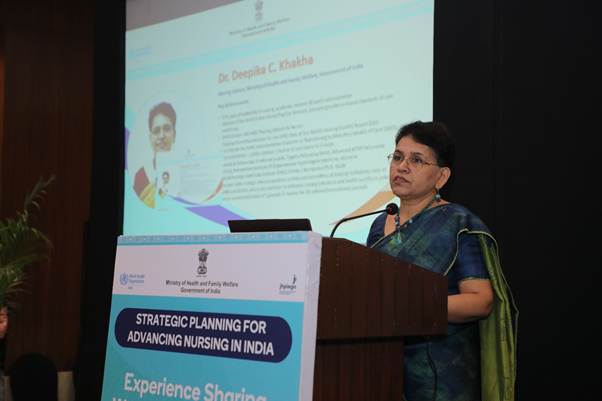
Recapping the discussions, Dr. Deepika Khakha, Director General of Health Services (DGHS), Ministry of Health and Family Welfare, commended the collaborative spirit of the deliberations and emphasized the Ministry’s inclusive approach to policy formulation, bringing together stakeholders from states, academia, regulatory bodies, and partner organizations to ensure that diverse perspectives inform future policies.
Addressing the gathering, Ms. Akansha Ranjan, Deputy Secretary (Nursing and Dental), Ministry of Health and Family Welfare, spoke on the theme “One Vision, One Agenda: Strengthening Nursing and Midwifery through National–State Collaboration.” She emphasized that strong coordination between national and state systems is key to translating policies into effective action on the ground.
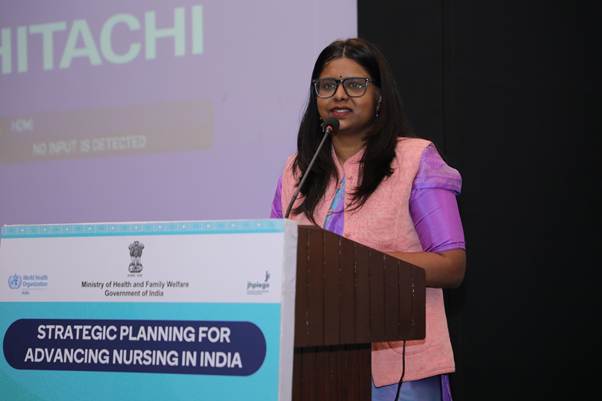
She also highlighted that the shared vision between the Centre and States aims to strengthen the nursing and midwifery ecosystem as an integrated, resilient, and forward-looking component of India’s healthcare system. She appreciated the active participation of states, professional councils, and partner organizations in shaping a roadmap for nursing reforms that are inclusive, scalable, and sustainable.
Speaking at the occasion, Dr. Amit Arun Shah, Country Director, Jhpiego, emphasized the importance of competency-based education, leadership development, and digital innovation in creating a responsive, skilled, and globally competitive nursing workforce. He reiterated Jhpiego’s commitment to supporting state and national governments through technical assistance, capacity building, and evidence-based interventions to strengthen the nursing ecosystem across India.
Dr. Khandait, Deputy- Director and Country lead- Gates Foundation, addressed the gathering with an encouraging and forward-looking perspective on the future of nursing in India. He expressed optimism about the transformative momentum seen in the sector and appreciated the collaborative efforts of the Ministry, states, and partners in advancing reforms.
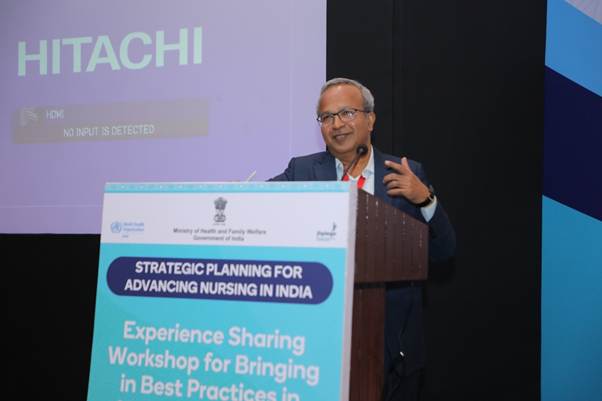
The workshop aims to consolidate insights from across states and institutions, paving the way for the adoption and scaling up of best practices to build a resilient, competent, and empowered nursing workforce across India.
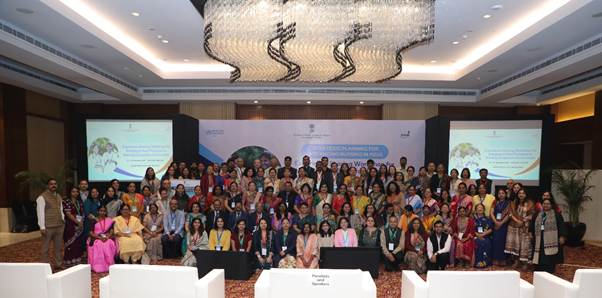
***